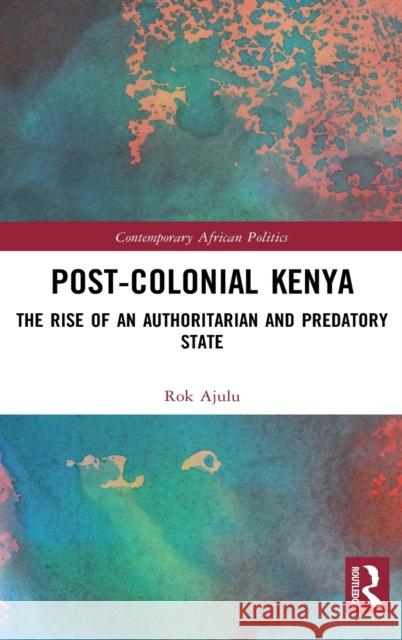Post-Colonial Kenya: The Rise of an Authoritarian and Predatory State » książka
Post-Colonial Kenya: The Rise of an Authoritarian and Predatory State
ISBN-13: 9781472461667 / Angielski / Twarda / 2021 / 198 str.
Post-Colonial Kenya: The Rise of an Authoritarian and Predatory State
ISBN-13: 9781472461667 / Angielski / Twarda / 2021 / 198 str.
(netto: 720,05 VAT: 5%)
Najniższa cena z 30 dni: 654,86
ok. 16-18 dni roboczych.
Darmowa dostawa!
This engaging reassessment of postcolonial Kenyan political history develops a theory of historical change and the role of leading figures in it. Combining political economy with political sociology it demonstrates how violence following the contested presidential election of 2007 represented, to a much more extreme extent, a continuation of the pattern of political contestation that has repeated itself throughout Kenya's political history. Like many other sub-Saharan countries, Kenya's authoritarianism and the predatory deployment of the state has been the predominant feature of the post-colonial period. To understand the roots of political crisis and obstacles to democratization in Kenya, Rok Ajulu focuses attention on the character of the post-colonial state, its forms of accumulation, the character of the elites which control it, and how this power is mediated politically. This analysis shows that, precisely because extra-economic coercion remains the dominant medium in economic activity, economy and society remain locked together in the sphere of politics and thus most economic activity also remains predominantly political. Economic mobility and expansion of the new ruling class is largely tied to continued control of state-power and this control is so crucial it must be retained at all costs.











